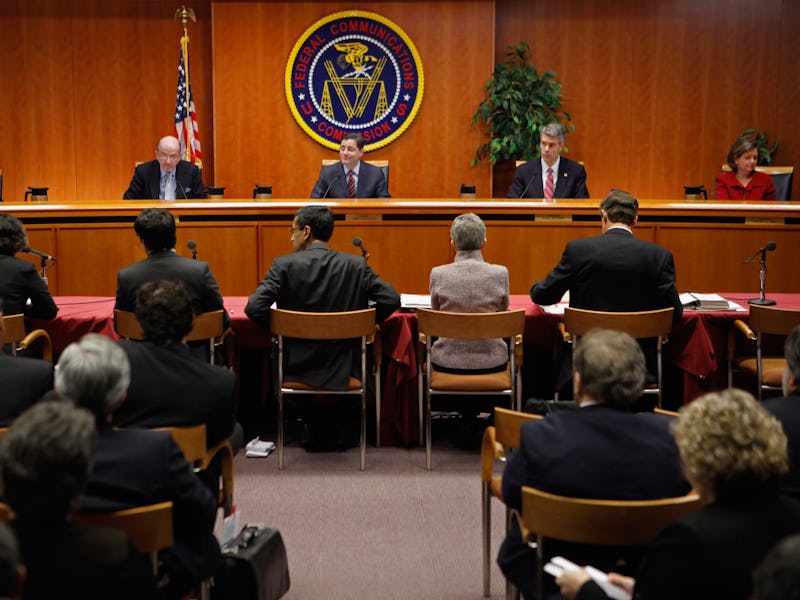Why Net Neutrality Will Hold Up in Court, for One Simple Reason
The distinction is pretty clear, but the FCC is trying to make it complicated.

If Ajit Pai and the Republican-led FCC succeed in killing off Net Neutrality, the ensuing legal fight will almost certainly go to court. While net neutrality can be confusing — the proposal to end the policy and put power back in the hands of corporations is called “Restoring Internet Freedom” — there’s one simple distinction that shows why internet activists think they have a very good chance at keeping net neutrality around.
On Tuesday, the FCC released its public notice of proposed rulemaking to “Restore Internet Freedom,” beginning the process of killing net neutrality. The FCC’s preliminary vote went 2-1 in favor of the proposal, straight down party lines (despite the Democratic commissioner’s best efforts](https://www.inverse.com/article/31850-mignon-clyburn-net-neutrality-fcc-dissent)), and it’s reasonable to assume that in a few months, those rules will become official. But Holmes Wilson, the co-founder and co-director of Fight for the Future, a free internet pro-Net Neutrality group, explained why he and other advocates think the law is on their side.
“One important piece of this is the question of whether the internet is an information service or a telecommunications service,” Wilson told Inverse.
An information service, Wilson says, is something that hosts information and displays it for users. Examples include websites like Google or Netflix. A telecommunications service, on the other hand, is like a phone line — it just allows users to transmit information back and forth.
“No reasonable person would look at the definition of ‘information service’ and ‘telecommunication service’ and say that what the ISPs are offering is an ‘information service’ like Google, or Netflix,” Wilson says.
Federal courts upheld this general argument twice in 2015, when cable companies like Verizon tried to sue the government to get out of Title II regulations, which restricts what telecom companies can do with user data and how they can charge for it. But if Pai’s proposal passes, it will probably go back to the courts for further debate. Wilson explained the general argument the new cable-friendly FCC will make:
“In order to make the argument, ISPs have actually had to say that the email addresses they provide (e.g. grandma271@verizon.net) make the entire internet service they provide an information service. They’ve also said that by offering DNS (the default domain name lookup you’d use to load a website) they’re offering an information service.”
That’s a novel argument, but Wilson says he doesn’t think it’ll ultimately hold water.
“It’s ridiculous,” he says. “Any reasonable judge would see through this, in this day and age. ISPs get people online. That’s that. And that means Title II is the appropriate classification.”
In other words, we’ll almost certainly be seeing Ajit Pai in court.